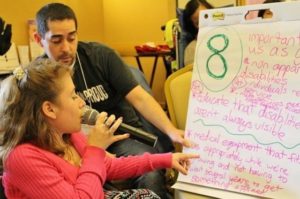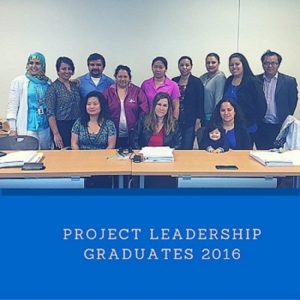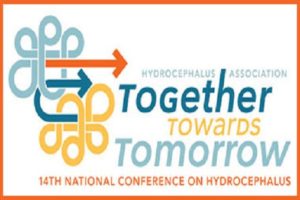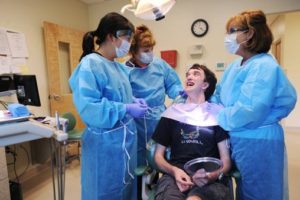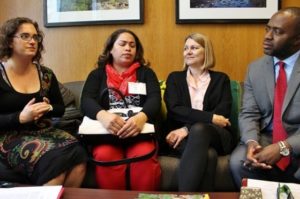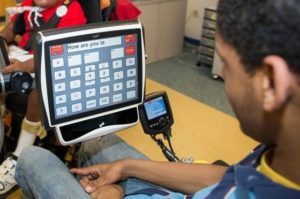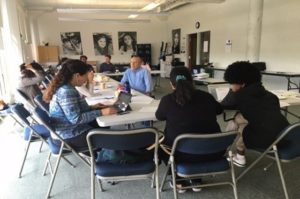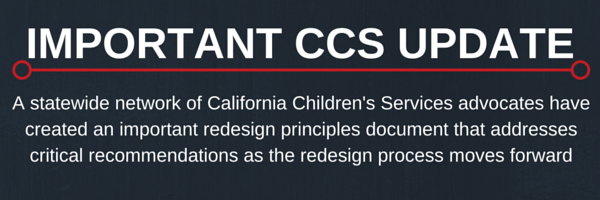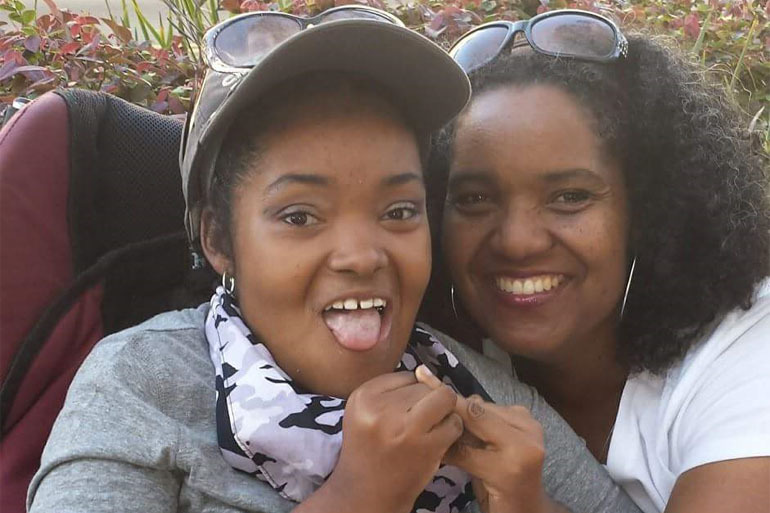This newsletter was sent June 14, 2016. If you’d like to receive our next bi-weekly digest full of a curated collection of resources, workshops, policy highlights, and action items that affect children and youth with special health care needs, please sign up here.
NEWS
Health Summit Highlights Report And Panel PowerPoints Now Available
Family Voices Of California’s 14th Annual Health Summit And Legislative Day took place on March 14-15 and brought together families of children and youth with special health care needs, professionals from government agencies, and health care providers/advocates. For a summary of activities, panel presentations, a legislative day recap, and participant feedback, click here to browse our Highlights Report. In addition, PowerPoints from our three panels on California Children’s Services, Medi-Cal Managed Care, and mental health can be found in full here.
San Leandro’s Family Resource Navigators Completes 2016 Project Leadership Training
Family Resource Navigators (FRN) completed their recent round of Project Leadership training with a total of nine graduates (seven Spanish-speaking, one Chinese-speaking, and one English-speaking). The Project Leadership curriculum was developed by Family Voices Of California and introduces parents and caregivers to the nuts and bolts of advocacy in a series of seven trainings. Parents learn how to partner and engage in all levels of public advocacy on behalf of children with special needs. FRN’s training was sponsored by Alameda County First Five and all graduates will go on to join the Help Me Grow Family Advisory Committee. The curriculum is available for download on our website and is easily adaptable to your specific advocacy needs: FRN chose to include more information on early childhood developmental screening, Help Me Grow, and local advocacy. To access the curriculum, please click here.
Parent-Penned Op-Ed About Autism And Aging Out Of The School System Published On California Health Report
This April, Family Voices Of Californias’ Project Leadership graduates attended an op-ed writing workshop led by California Health Report’s Daniel Weintraub. The first piece out of this seminar is by Pam Raymond and deals with the issues children with autism (and their parents) face as they age out of the school system. To read the op-ed, click here.
Hearing June 21 To Discuss California Children’s Services Redesign Bill (SB 586)
Senate Bill 586 addresses the future of the California Children’s Services (CCS) program and the state’s proposed plan to move some of the children covered under CCS to managed care plans. Recently, a collective group of advocates proposed revised language to the bill which can be read here. The Assembly Committee On Health will address SB 586 on June 21 in Sacramento. For more information on how you can listen to the hearing, click here.
RESOURCES
Summer Fun For Children And Youth With Special Needs: Accessible Travel, Camps, Family Movie Night, And Summer Reading
If you’re planning on taking a summer trip this year, the AXS mobile phone app can help you find, rate, and share wheelchair accessible locations all over the country. The app was developed by a filmmaker after he was diagnosed with multiple sclerosis and has since helped galvanize groups for ‘Mapathons,’ divide-and-conquer type marathons where people map select neighborhoods in one day. If your child enjoys summer camp, here’s a list of special needs camps in Southern California and the Bay Area as well as a catch-all list with a breakdown of amenities and activities and an autism-specific list from Autism Speaks. Lastly, if your family is looking to have a night in, check out this list of award-winning films about kids with special needs as well as this list of disability-themed children’s books.

Updated Edition Of First Steps: A Parent’s Guide To Prader-Willi Syndrome
First Steps is a resource for parents, by parents, that has helped hundreds of families figure out what to do immediately after a Prader-Willi Syndrome diagnosis. The new edition includes 16 pages of updated insights and strategies for coping and thriving, information about symptoms and treatments, and links to resources. To access First Steps, click here.
New Series Of Ear, Nose, And Throat Videos From HealthyChildren.org
Developed by the American Academy Of Pediatrics and the American Society Of Pediatric Otolaryngology, the five new videos are titled, ‘Could My Child Have A Breathing Problem?’, ‘Does Your Child Snore?’, ‘Noisy Breathing In Children,’ ‘Treating Ear Infections In Children,’ and ‘What To Do If You Discover A Lump On Your Child’s Neck.’ To access the videos, click here. Related: an article on hearing loss in children with Down Syndrome.
Cystic Fibrosis Foundation Releases Annual Report
The Cystic Fibrosis Foundation released their annual report which summarizes key research highlights including the Federal Drug Administration’s approval of Orkambi, the first combination drug to treat the root cause of cystic fibrosis, and Relizorb, a cartridge containing digestive enzymes that helps break down beneficial fats in supplemental nutrition. Other sections address patient care (with a large focus on areas that need improvement), access and policy, community partnerships, fundraising, and communications. To read the report, click here.
The Children’s Partnership: The Affordable Care Act And Children’s Coverage In California: Our Progress And Future
This report from the Children’s Partnership looks at health reform advancements made in California and details what’s necessary to continue to support a healthy future for all children. One suggested improvement for children with disabilities concerns the Children’s Health Disability Prevention (CHDP) program, a developmental screening program for low-income children that has a gateway to Medi-Cal enrollment. Since the CHDP application information can serve as an initial screening for Medi-Cal eligibility and provides temporary coverage, the report suggests that the CDHP gateway could offer express eligibility and provide ongoing coverage. To read the report, click here. Related: an article on what parents of children with disabilities need to know about changes to the Affordable Care Act.
WEBINARS
Webinar Recording: Family Participation In Discharge Planning: Voices Of Patients, Parents, And Advocates
To view the recording, click here.
June 15: ADHD: The Taming Of The Shame
Sponsor: Attention Deficit Disorder Association
More information and registration here.
June 15: Targeting Social Influences That Shape Health Literacy In Communities
Sponsor: Healthy People 2020
More information and registration here.
June 16: Improving The Safety Of Clinical Alarm Systems
Sponsor: UCSF Benioff Children’s Hospital
More information and registration here.
June 17: I’m A Parent Of A Young Child With ADHD: Why Do I Need Training In Behavior Therapy?
Sponsor: National Council For Behavioral Health
More information and registration here.
June 21: Future Planning For People With Dual Diagnoses Of Disabilities And Mental Health Needs: Strategies And Challenges
Sponsor: The Arc
More information and registration here.
June 22: Investigating Autism’s Skewed Sex Ratio
Sponsor: Spectrum
More information and registration here.
June 22: Eliminating The Use Of Seclusion And Restraint In Youth With Disabilities And Co-Occurring Behavioral Health Disorders
Sponsor: The National Association For The Dually Diagnosed
More information and registration here.
June 28: The Attorney Client Relationship: Bridging The Gap Between Attorneys, Clients With Disabilities, And Their Families
Sponsor: The Arc’s National Center On Criminal Justice And Disability
More information and registration here.
June 29: Recruiting, Training, And Retaining Members For Engagement On Consumer Advisory Committees
Sponsor: Resources For Integrated Care
More information and registration here.
June 30: Siblings As The Next Generation Of Advocates For People With Disabilities
Sponsors: Children’s Hospital Los Angeles and University Of Southern California
More information and registration here.
ARTICLES
“San Diego Mother Mourns While Mental Health Gaps Persist”
“Amid Intense Isolation, Stirrings Of Hope for Families With Rarest Genetic Mutations”
“Pediatric Research: Too Much Noise A Problem For Premature Babies”
”A Good Night Sleep May Shorten Kids’ Hospital Stays”
“Freed By Court Ruling, Texas Medicaid Again Orders Pay Cuts For Disabled Kids’ Therapists”
“Drama Classes May Boost Social Skills In Kids With Autism”
“New Sleep Duration Guidelines For Children Released, Backed By AAP“
“Blacks Die From Asthma At Steep Rates, But Are Absent From Many Studies”
“A Riding Program For Disabled Children Finds Stables It Can Call Home”
“Autism Documentary Heads to Theaters”
“North Carolina Becomes First State To Create Rare Disease Advisory Council”
“Kids With Disabilities 2x More Likely To Be Suspended From School”

